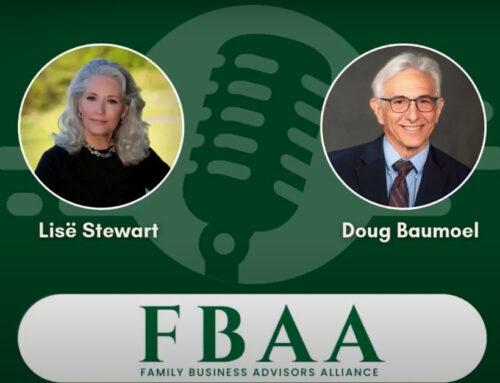The Real Purpose of Family Enterprise Governance: Developing the “Four Capitals”
Nurturing the four types of capital to maximize the potential of your enterprising family.
Byline: Doug Baumoel
Estimated read time: 3 mins
In this commentary, we explore the four types of capital—financial, human, spiritual, and social, and the family enterprise governance system’s crucial role in promoting each of these for the benefit of the family.
Family enterprise governance systems may look different for different families. For some families, governance is a highly structured system of a family council, family office board, and a family business board; all connected by a well-crafted constitution with process, rules, and expectations. For other families, family enterprise governance may simply be a less formal process for how a family chooses to make decisions together about family and business or wealth issues.
Whatever governance choices are made by a family, the purpose of those choices can best be described as building the four capitals. When families are clear on this as their purpose, their governance choices become better and more resilient.
The four capitals presented here are our envisioning of ideas originally developed by Charles Collier and Jay Hughes.
Financial Capital
When it comes to financial capital, the family governance system must determine if the shared assets of the family are actually providing the intended benefit. Does the family business still interest the family? Has the risk profile of the shared asset become uncomfortable for some in the family? Is the enterprise producing the returns that the family stakeholders desire or require? Does the enterprise provide appropriate employment opportunities to the family? The family can identify and communicate that information to the corporate board or family office through a family council. Similarly, each enterprise governance entity is responsibility for communicating information about shared finances, professional and other opportunities from the enterprise to the family members through the family council.
Family governance provides a platform for providing this feedback in a thoughtful and organized manner so as not to disrupt the board process or business operations. Sometimes, an owner’s council can be formed as a committee of the family council or as a liaison to the corporate board or family office, when the concerns of owners may be different from the concerns of other family members.
Human Capital
Members of the family governance system should routinely ask themselves: Are all individuals in the family thriving? A responsibility of family governance is ensuring all family members have the opportunity to advance together—this is what we mean by developing human capital. If and when a family member is struggling, whether financially, professionally, or personally, a family council (or committee) may consider intervening to provide resources to that family member. Such resources could be financial (loans or grants), developmental (education, coaching, medical assistance), or personal (intervention, conversation).
Spiritual Capital
Spiritual capital isn’t necessarily about faith or religion, but rather how a family shows up in the world. Does the family face the world as a united whole? Are they aligned in their vision and their purpose as a family? Do they know each other well and accomplish things together efficiently? If so, they have high spiritual capital. It’s important to note that shared faith and traditions can be a strong part of spiritual capital, but so can a family’s commitment to a diversity of values and beliefs.
Spiritual capital requires that families manage conflict well and have the ability and interest to do things together. Investing in keeping the family connected through things like newsletters, retreats, get-togethers, etc. all help build spiritual capital in a family.
One way to think about spiritual capital is through the concept of the Family Factor, described in our book Deconstructing Conflict. The Family Factor is defined as the answer to the question: Is the family bond strong enough to leverage compromise, forgiveness, and a commitment to change. The family governance system should, overall, help build the Family Factor by ensuring everyone knows each other, is well connected and is presented with opportunities to build trust. This is typically accomplished by a family council that can schedule and facilitate family retreats and events, and build a communications platform to share information securely.
Social Capital
Social capital refers to the impact the family has on its community and the world, and whether or not that impact meets the family’s desired, shared goals and values. It’s the responsibility of the family governance system to ensure that family activities are aligned with the family values and mission. This includes organizing and participating in philanthropic activities and ensuring that their business and its leaders comport themselves in alignment with family values and mission. Providing these checks and balances can be done through regular communications between the family council (or an owner’s council) and the boards of the family office or family business. Additionally, families that organize around a family foundation or other philanthropic activity, have great opportunities to build their social capital together.
How we can help
At Continuity, we not only help families create effective family governance and forge alignment on their 4-capitals, but we also help trusted advisors be more effective resources to enterprising families for building family governance.
Stay in the Know
Get our latest articles, tips, and insights delivered straight to your inbox.
Share this Insight, choose your platform!
About Us
Continuity Family Business Consulting is a leading advisory firm for enterprising families. Using a full suite of service capabilities, we help families prevent and manage the single greatest threat to family and business continuity: conflict. It is through this lens that we advise our clients and build customized strategies for succession planning, corporate governance, family governance, and more. We help families improve decision making, maximize potential and achieve continuity. To inquire, contact us.












